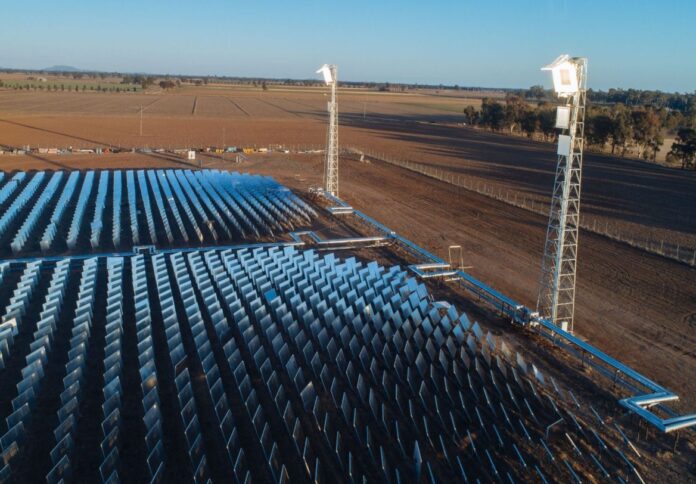
Renewable energy technology firm Vast Renewables Limited has received planning consent for its groundbreaking Solar Methanol 1 (SM1) project.
The SM1 facility, to be located in Port Augusta, South Australia, will produce 7,500 tonnes of green methanol annually, leveraging Vast’s CSP technology to generate zero-carbon electricity and industrial process heat, the company said in a news release.
The SM1 project, developed in collaboration with global energy company Mabanaft GmbH & Co. KG, aims to produce green methanol, a versatile hydrogen derivative that can significantly reduce the carbon footprint of the shipping industry.
According to the firm, the project integrates several proven technologies to achieve its green methanol production goals.
It includes a Leilac calcination plant from Australian technology company Calix to capture carbon dioxide emitted during cement and lime production, an electrolysis plant to produce hydrogen, and a dedicated methanol plant.
This innovative approach supports South Australia’s initiative to build a domestic hydrogen industry and offers a scalable solution for green fuel production, independent of limited biomass resources.
SM1 will be powered by the VS1, a co-located 30 MW / 288 MWh CSP plant that uses Vast’s CSP v3.0 technology to provide renewable heat and electricity necessary for producing green fuels.
In February, Vast and its project partners secured up to AUD $19.48 million in funding from the Australian Renewable Energy Agency (ARENA) for the SM1 project.
Additionally, project partner Mabanaft received up to EUR 12.4 million from Projektträger Jülich (PtJ), a German public sector partner in science, industry, and politics.
This funding is part of HyGATE, a collaborative initiative between the Australian and German governments to support pilot, trial, and demonstration projects along the hydrogen supply chain.
Craig Wood, CEO of Vast, emphasised the significance of the planning consent: “Planning consent is an important milestone for this major project for Port Augusta and South Australia. SM1 will produce low-cost green fuels, which can play an important role in decarbonising the global maritime industry.”
“The combination of technologies can be scaled rapidly, acting as a catalyst for a green fuels industry in Australia and around the world,” he continued.
Phil Hodgson, CEO and managing director of Calix, highlighted the project’s innovative approach. “Capturing and using unavoidable emissions from cement and lime is an exciting option to help decarbonizse multiple hard-to-abate industries.”
He added, “It is pleasing to see this innovative and collaborative project achieve another important milestone, bringing the world’s first solar methanol plant one step closer to being realized.”
Volker Ebeling, senior vice president of New Energy, Supply & Infrastructure at Mabanaft, expressed optimism for future developments.
“After evaluating the effectiveness, we expect larger-scale projects to be developed that would serve other markets, including Europe,” Ebeling concluded.




















